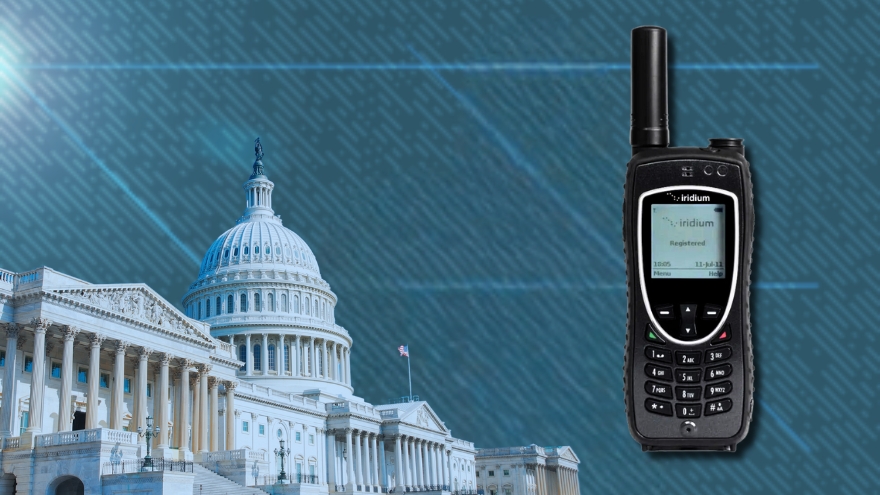U.S. senators have been issued satellite phones as part of a plan to bolster security amid growing concerns of risks to congressional officials, CBS News reported.
Citing the potential for a man-made or natural disaster, the satellite phones were offered to all 100 senators and at least half have accepted them, according to an unnamed source who spoke with CBS.
Last month, Senate Sergeant at Arms Karen Gibson testified before the Senate Appropriations Committee that satellite phones were being issued “to ensure a redundant and secure means of communication during a disruptive event.”
She added, as CBS noted, that the phones are a security backstop in case of an emergency that “takes out communications” in the U.S.
In addressing the U.S. System Assessment and Validation for Emergency Responders (SAVER) Program, the Department of Homeland Security (DHS) said that satellite phones may be used “in areas where existing networks are damaged or overloaded during a natural disaster (e.g., severe weather or earthquake) or a man-made incident, including potential chemical, biological, radiological, nuclear, or explosive events.”
It has not yet been revealed which senators have accepted the phones or if congress is aware of any specific threats.
Shortly after the report was published, various theories circulated online speculating as to why congressional officials may have been issued the secure communications devices.
One theory suggests the timing could be related to 30 tons of ammonium nitrate, a chemical used in explosives, that went missing on a rail shipment from Wyoming to California and has still not been located.
I find this interesting as Explosives just randomly went missing from California. It’s as if something is planned… https://t.co/1xtkM36vQE
— AG 🔥 (@Yolo304741) May 22, 2023
Ammonium nitrate has been a key factor in at least 46 disasters or terrorist attacks dating back to the year 1916.
Other chatter suggests the satellite phone roll-out could be connected to a potential cyber attack that may hit sometime prior to the 2024 election.
Many are worried a cyber attack prior to the 2024 election would be used to justify changes in voting procedures that will benefit Joe Biden
Today we learned that US Senators are being issued special satellite phones for this exact scenario
Not goodhttps://t.co/vcXBYUGUj9
— DC_Draino (@DC_Draino) May 22, 2023
"Amid growing concerns of security risks to members of Congress, more than 50 senators have been issued satellite phones for emergency communication"
What exactly is going on here?https://t.co/IRziIbuAs4
— Tim Young (@TimRunsHisMouth) May 22, 2023
Satellite phones offer global coverage for voice and text, as well as the ability to pinpoint a user’s exact location in the event of a disaster.
“Satellite phones generally require line-of-sight with the sky to receive a signal for service,” according to a report from the DHS. “Obstructions, such as trees, buildings, hills, and mountains, can block the phone’s information signal. As a result, satellite phones do not work well indoors, although operation may still be possible if the phone is positioned near a window.”
